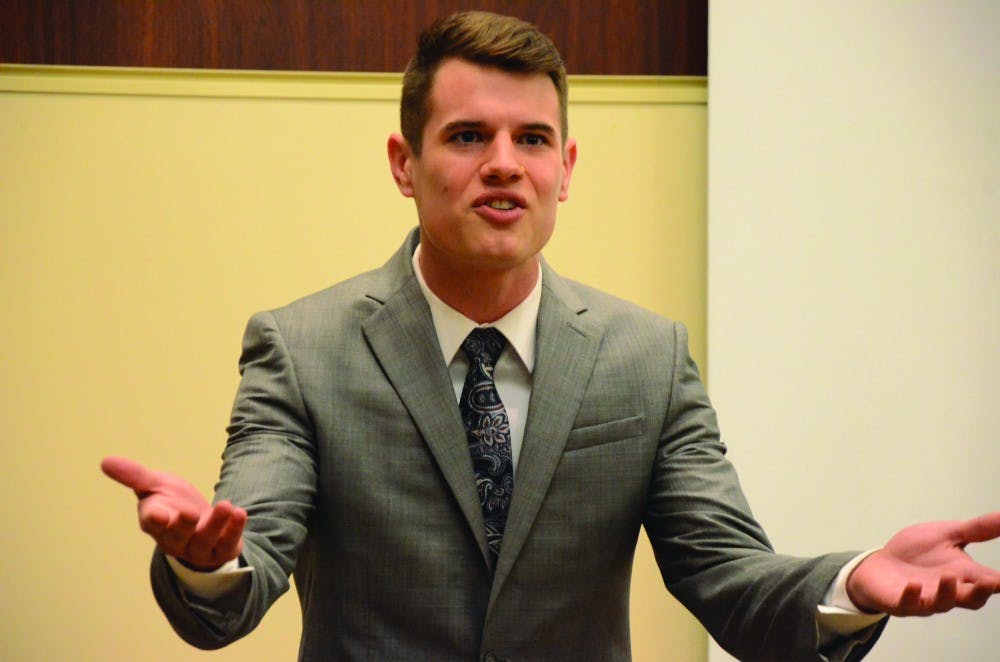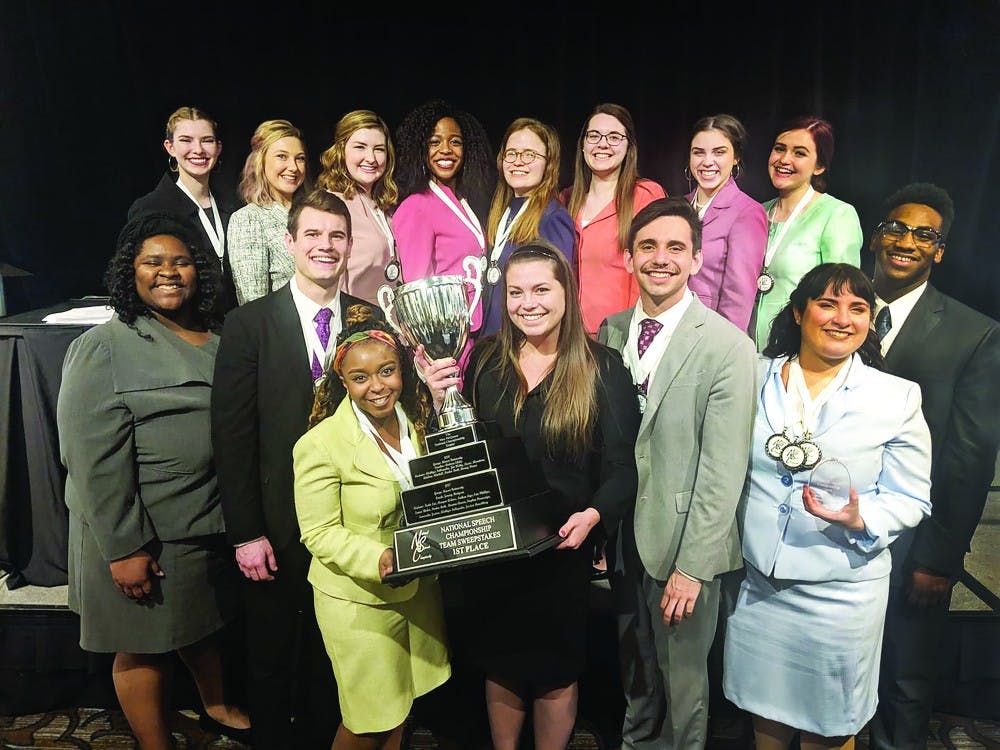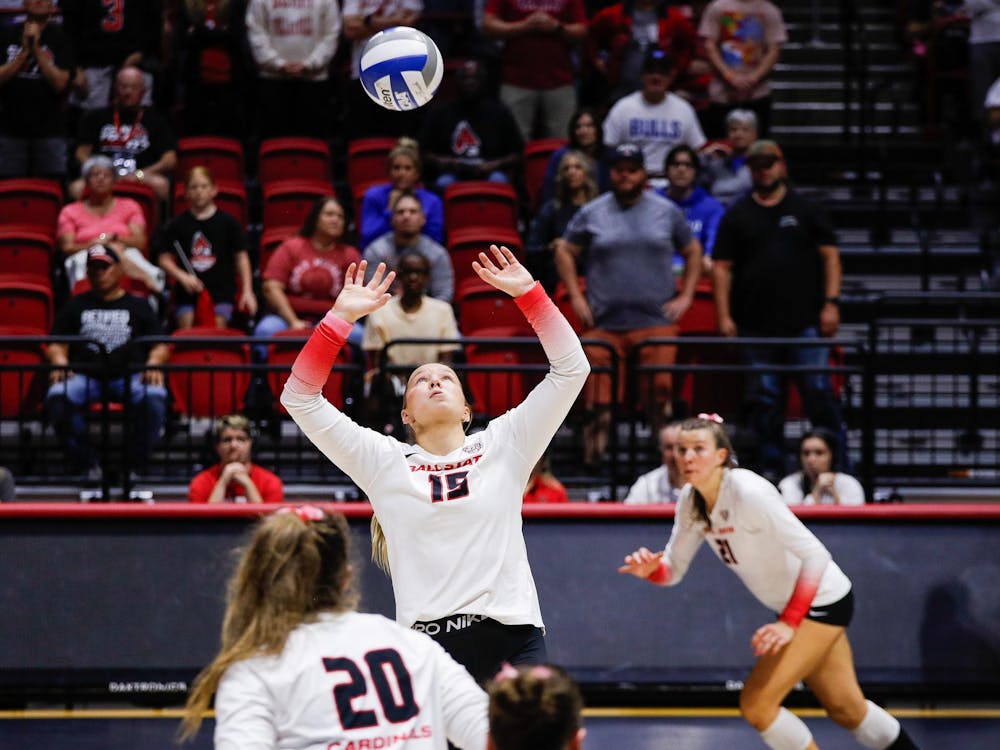For 10 minutes, members of the Ball State Speech Team had everyone’s attention and the stage to themselves as they performed their speeches.
“No one gets to interrupt you, no one gets to tell you 'no,' no one gets to say, ‘I don’t agree with this,’” said Lily Schwab, a senior speech performer. “In those 10 minutes, people have to listen to you.”
After winning the National Speech Championship, hosted by Oakland University in Michigan, the team will head to Santa Ana, California, for the National Forensics Association, NFA’s, National Championship Tournament.
In addition to Ball State, more than 80 schools will attend NFA’s Championship Tournament to compete in nearly 63 events.

“What we like about this national tournament is that it provides a pretty level playing field because you can only take your top two students in each category,” said Mary Moore, the director of the Ball State Speech Team. “[This tournament is] unlike other events where they allow you to bring as many students as you want.”
Before the team takes the stage in California, each participating member practices for nearly five hours a week and attends weekly group meetings.
“We practice, practice, practice,” Schwab said. “We practice not until [the speech] is perfect but until we can’t get it wrong.”
Members can perform speeches in one of three categories: traditional speeches where performers can prepare, impromptu speeches where performers are given a topic to discuss, and interpretation events where performers reenact scenes from stories or poetry by presenting arguments about them.
Within each category, performers can take a variety of approaches, including informative, persuasive, rhetoric or poetry.

Senior Max Haywood gives a persuasive speech on student loans at the Ball State Speech Team’s Night Before Nationals Showcase April 15, 2019, in AJ 175. Haywood wanted to persuade his audience that students are affected by the loans they choose because it’s impossible to pay these loans back. Kamryn Tomlinson, DN.
During competitions, performers are scored individually and then together as a team, much like a track team meet, Moore said. For nationals, the competition is typically divided into octafinals, quarterfinals, semifinals and finals that determine the top 24 or 48 in the competition.
“What makes our team different than other teams is that we are such a strong community and family, and one thing we say a lot when we are strategizing is ‘protect this house,’” Schwab said. “So, even if you aren’t going to win, you want to protect your team so that one of your teammates can excel.”
With their speeches, members of the team become advocates as they build cases to combat issues and injustices they see happening in the world around them. Moore said the speech team works toward teaching these communication skills because she believes they are important.
“[Speech] is about working to give voice to those who maybe don’t have voices,” Moore said. “That is the power of what we are doing — it’s teaching students how to do that.”
Contact Kamryn Tomlinson with comments at kptomlinson@bsu.edu.





